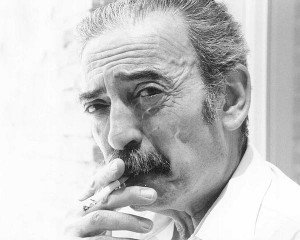 Juan Gelman was a poet from Argentine, who denounced the despotism of his country’s military junta in his poems (which claimed to mark an appearance of new literary movement called “new Spanish American poetry” that changed not only the world, but the word), died on Tuesday at his home in Mexico City at the age of 83.
Juan Gelman was a poet from Argentine, who denounced the despotism of his country’s military junta in his poems (which claimed to mark an appearance of new literary movement called “new Spanish American poetry” that changed not only the world, but the word), died on Tuesday at his home in Mexico City at the age of 83.
Mr. Gelman is thought to be one of the most outstanding authors in Spanish. He got the Cervantes Prize in 2007, which is considered to be one of the greatest annual literature awards in Spanish-speaking countries. Gelman is famous not only for his poems, but for his constant struggle against the regime of tyranny in his homeland. Poet had first-hand knowledge of the horrors of military junta: among the kidnapped in 1976 citizens who have any connection to socialism and dissidents were his daughter Nora Eva, his son Marcelo Ariel and his son’s wife, Maria Claudia Garcia, who was seven months pregnant.
Juan Gelman was determined to find out what happened to his disappeared family members. Fortunately, his daughter managed to survive, but his son and daughter-in-law got killed, while his granddaughter was given away to a family in Uruguay, where she was taken care of. Eventually, after 24 years, in 2000, he managed to find his granddaughter. Poet’s unstoppable search for what was left of his family made Gelman a hero for all the people who fight for human rights.
Juan Gelman was born in 1930 in Buenos Aires in the family of Jewish immigrants from Ukraine. As a child he enjoyed reading books of Russian and European authors. Gelman was going to study chemistry in the University of Buenos Aires, but he never finished his education. Gelman joined communists instead and worked as a journalist and editor for left-leaning newspapers. He was a remarkable political activist, that is why he was forced to leave Argentina after the Argentine coup in 1976.
Gelman, who wrote over 20 books, was widely known and respected in Spain as well as in Latin America – mostly because he devoted himself to the work against far-right strain of governance in Argentina. In his compositions he often refers to such subjects, as injustice and oppression. Every his book is truly a work of art. All of his works are an impressive mix of painful life experience, politics and vivid optimism. Nobody could be possibly left untouched by them.
Rafael Tovar y de Teresa, president of Conaculta, Mexico’s culture and arts council, announced Gelman’s death on Twitter and called him a “poet of the Mexican soul”.
President of Argentina Cristina Fernández de Kirchner declared a three-day national period of mourning. Jorge Coscia, the nation’s culture secretary, said about Gelman: “His whole life was a committed poem”. Could there be a better praise for a poet?